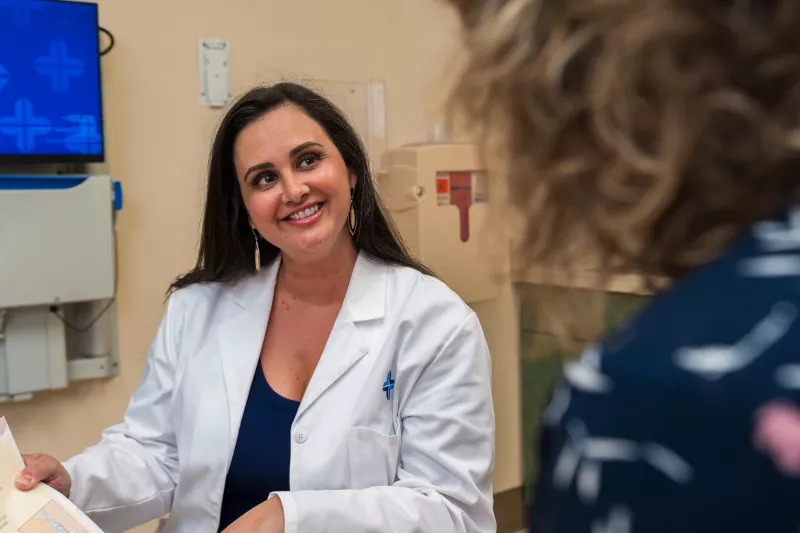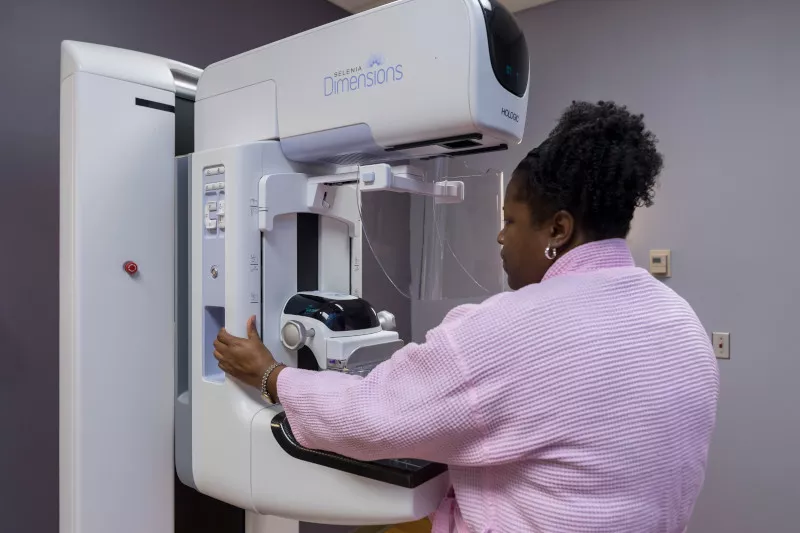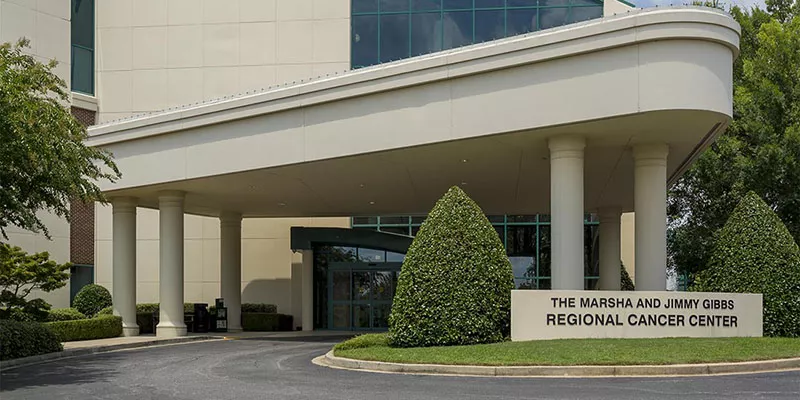A Female Surgeon Empathizing with Women
A Female Surgeon Empathizing with Women
Are you at high risk for breast cancer?
While you can’t prevent breast cancer, it’s important to know your risk so you can proactively manage your health.
If you answer yes to any of the following questions, you may benefit from a formal breast cancer risk evaluation to calculate your lifetime risk of breast cancer and see if you qualify for additional breast cancer screening.
- Does breast cancer run in your family?
- Do you have a family history of ovarian cancer?
- Did your mother, father, sister or brother have breast cancer?
- Did at least two aunts, uncles, grandparents or first cousins have breast cancer?
- Do you or does anyone in your family have a mutation in any of these genes: BRCA1, BRCA2, PTEN, TP53, CHEK2?
- Have you had radiation treatment to your chest between the ages of 10 and 30 years?
- Have you ever had an abnormal breast biopsy?
- Have you been told you have a high risk of breast cancer or previously had a breast MRI?
- Do you have a personal history of breast cancer?
If you have any questions or concerns, contact your primary care physician. If you don't have one, click the link below to find a doctor.

Changing What We Know About Breast Cancer
What Fellowship-Trained Breast Surgeon Means for You
Understanding that breast cancer care is not a one-size-fits-all approach, Dr. Palumbo breaks down the complexities for her patients. Her comprehensive discussions guide patients through their cancer journey, helping them make informed decisions about their care.
As a fellowship-trained breast surgeon, Dr. Palumbo is focused exclusively on breast-related conditions and surgeries, enabling her to provide a higher level of expertise and precision in diagnosing and treating breast diseases. By choosing a fellowship-trained breast surgeon, patients can have greater confidence in their treatment choices.

Mammograms Catch Cancer Early
A breast health screening — or screening mammogram — is the one tool proven to increase breast cancer survival rates. Screening mammograms can detect tumors that self-exams or clinical breast exams may miss.
While most screenings don’t result in a cancer diagnosis, knowing your results can put your mind at ease. If you develop breast cancer, getting a yearly mammogram is a key to catching it in its earliest, most treatable stages. We also encourage you to perform monthly breast self-exams and to see your doctor each year for a clinical breast exam.
How Our Expert Care Makes a Difference
Breast surgery often requires a multidisciplinary approach, involving collaboration with oncologists, radiologists, plastic surgeons and other specialists. Fellowship-trained breast surgeons are accustomed to working in a team setting, ensuring patients receive comprehensive and well-coordinated care.

SMC - Division of Surgery - Gibbs Cancer Center
Our practice is a division of Spartanburg Medical Center. Our doctors and providers are dedicated to meeting your healthcare needs, from wellness and prevention to the diagnosis and treatment of illnesses.











